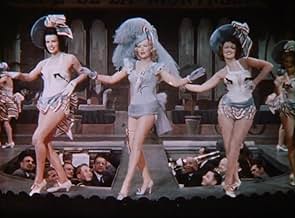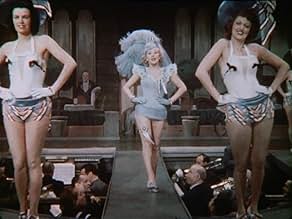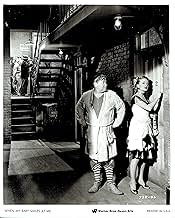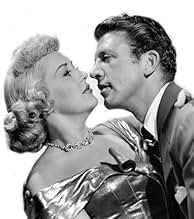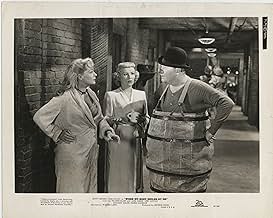Ajouter une intrigue dans votre langueVaudeville performers, Dailey and Grable, have marital difficulties when he hits the "Big Time", which are compounded by his drinking problem.Vaudeville performers, Dailey and Grable, have marital difficulties when he hits the "Big Time", which are compounded by his drinking problem.Vaudeville performers, Dailey and Grable, have marital difficulties when he hits the "Big Time", which are compounded by his drinking problem.
- Nommé pour 2 oscars
- 3 nominations au total
Louise Allen
- Dancer
- (uncredited)
Maxine Ardell
- Dancer
- (uncredited)
Dorothy Babb
- Specialty Dancer
- (uncredited)
Betty Jane Barton
- Dancer
- (uncredited)
Pati Behrs
- Woman in Box
- (uncredited)
Sam Bernard
- Process Server
- (uncredited)
Lela Bliss
- Woman
- (uncredited)
Harry Carter
- Man in Box
- (uncredited)
Edward Clark
- Box-Office Clerk
- (uncredited)
Joanna Dale
- Chorus Girl
- (uncredited)
Grace Davies
- Dancert
- (uncredited)
Histoire
Le saviez-vous
- AnecdotesDan Dailey's Best Actor Oscar nomination marked a career high-point, though his portrayal of 'Skid' Johnson never stood a chance opposite Laurence Olivier's loftier central performance in the same year's Hamlet (1948). This illustrates the sometimes ludicrous range of nominations in the acting categories during Hollywood's golden era, the result of a far wider spectrum of genres represented. A similar disparity had emerged three years earlier when Gene Kelly's lighthearted performance in the musical Anchors Aweigh (1945) was improbably pitted against Ray Milland's histrionic performance as a desperate alcoholic in The Lost Weekend (1945).
- Citations
'Skid' Johnson: Here's to you babe. One man's loss is another man's gain.
- ConnexionsFeatured in Biography: Betty Grable: Behind the Pin-up (1995)
Commentaire en vedette
Betty Grable and Dan Dailey fare quite well in this musical comedy-drama which, initially, appears to have come straight off the '40s-era assembly line at 20th Century-Fox Studios. Based on the play "Burlesque" by Arthur Hopkins and George Manker Watters, the atypically complicated plot concerns a married couple, stage performers in the 1920s, who are separated after the husband gets a shot on Broadway and the wife gets stuck behind on the road. The twosome remain devoted to each other until it leaks in the press he has been spending lots of free time with a pretty new co-star--the wife's nemesis! Grable wears a cockamamie hairdo throughout (and her only good song, "What Did I Do?", is hampered by poor choreography), though she's sweet in her backstage scenes, joshing with pals Jack Oakie and June Havoc, and playing flattered star to handsome admirer Richard Arlen. Dailey, on the other hand, received an Oscar nomination for his work, and it's easy to see why; walking a fine line between pathos and comedy, he's portraying a talented alcoholic, desperate to keep the peace while needing an outlet for his own frustrations (one senses he isn't so much insecure as he is a grown-up child who needs a firm, upstanding mother-figure to guide him). The picture doesn't really get into the masochism build into the plot's formula. Grable can see that her husband "Skid" is on the skids, floundering and helpless--his own worst enemy--yet Grable's loving responses to him are a tad bit insane. Sure, she's noble by lending a helping hand, but the movie-makers equate her kind gestures with a selflessness that goes beyond the call of duty. Betty isn't an enabler, per se--the point is made that her unconditional devotion will turn everything right again--but how many people actually bought this 'happy ending'? I didn't find it very convincing, but 1948 was really too early for Hollywood musicals to become dark and probing. For its time, this was probably just the tonic for matinée audiences hoping to shake the blues away. **1/2 from ****
- moonspinner55
- 1 mai 2009
- Lien permanent
Meilleurs choix
Connectez-vous pour évaluer et surveiller les recommandations personnalisées
Détails
- Durée1 heure 38 minutes
- Rapport de forme
- 1.37 : 1
Contribuer à cette page
Suggérer une modification ou ajouter du contenu manquant

Lacune principale
By what name was When My Baby Smiles at Me (1948) officially released in Canada in English?
Répondre
